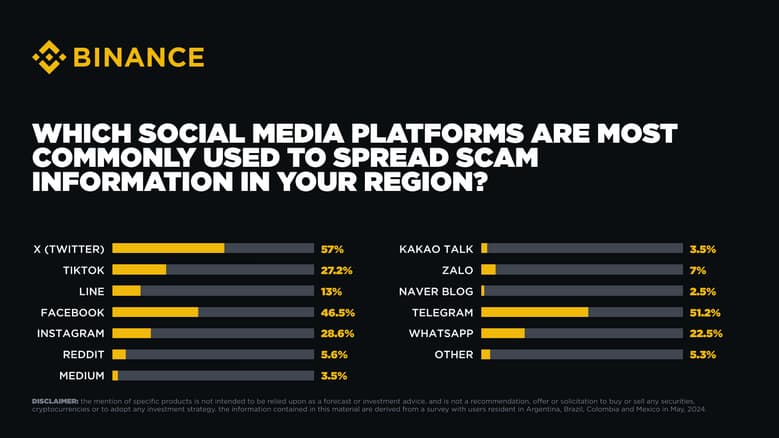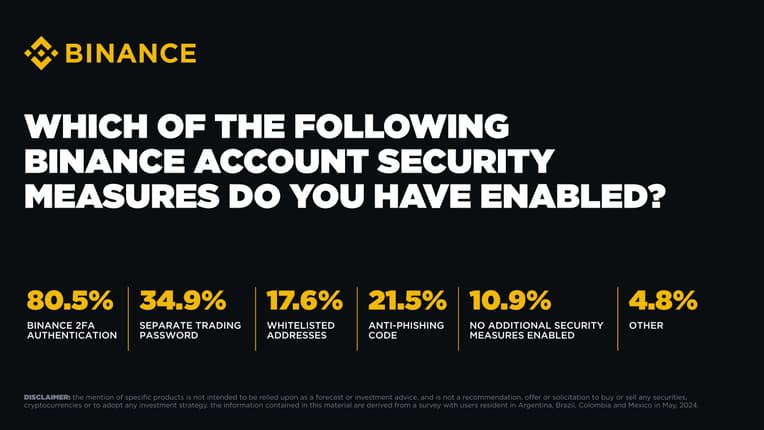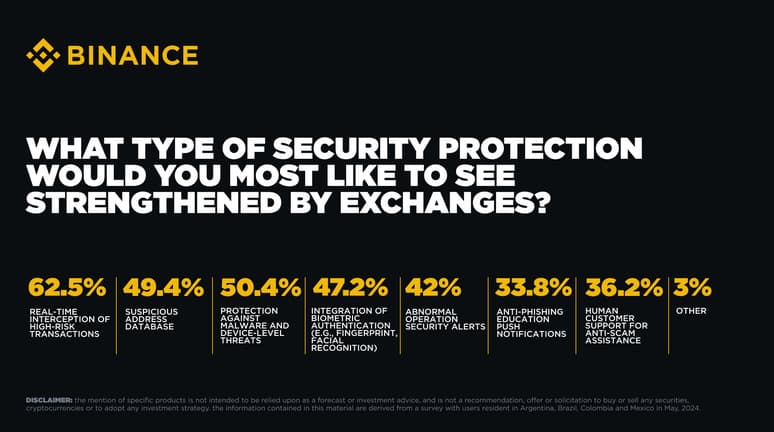Binance survey highlights evolving crypto security practices in Asia

The largest cryptocurrency exchange in the world, Binance, released the results of its Asia Crypto Security Survey on May 6, after collecting responses from 29,847 cryptocurrency users in Southeast Asia, South Asia, and East Asia.
Binance’s questionnaire covered a wide variety of security topics — while the results of the survey point to both increased awareness of security issues in the Asian markets as well as a high degree of trust in existing security measures.
Some 40.7% of survey participants reported having experienced some form of exposure to crypto-related scams. In terms of the channels used to propagate these malicious ploys, X, Telegram, and Facebook seem to be the most commonly used — with 57%, 51.2%, and 46.5% users identifying these platforms as being leveraged to spread scam information in their regions.
Binance survey reveals users want real-time monitoring, public databases to strengthen crypto security
Over half of the traders who answered the survey — 53.4%, to be exact — stated that they would immediately contact the exchange in the event of a scam. Moreover, some 84% said that they trust protections such as Binance’s emergency fund, SAFU.
At present, 80.5% of queried users have the exchange’s 2-factor authentication (2FA) feature enabled — while 34.9% maintain a separate trading password. In contrast, only 10.9% of users forgo any additional security features.
When it comes to future improvements, active, real-time monitoring on the part of exchanges, as well as access to public databases, seem to be priorities for cryptocurrency investors in Asia. Some 62.5% of respondents highlighted real-time interception of high-risk transactions as a security feature they would like to see exchanges strengthen, while 49.4% called for the establishment of public databases that would contain suspicious addresses
In addition, the survey highlights a disparity between experienced crypto users and novices — with a full third of users still storing their private keys on internet-connected devices, a figure that climbs to 42% in Southeast Asia.
Education remains a critical pillar of security, but there is evidently a need for improvement — as 55.8% of users find existing materials “too technical and hard to understand”, while 39.7% have stated a preference for localized, real-life case studies.
Featured image from Shutterstock






